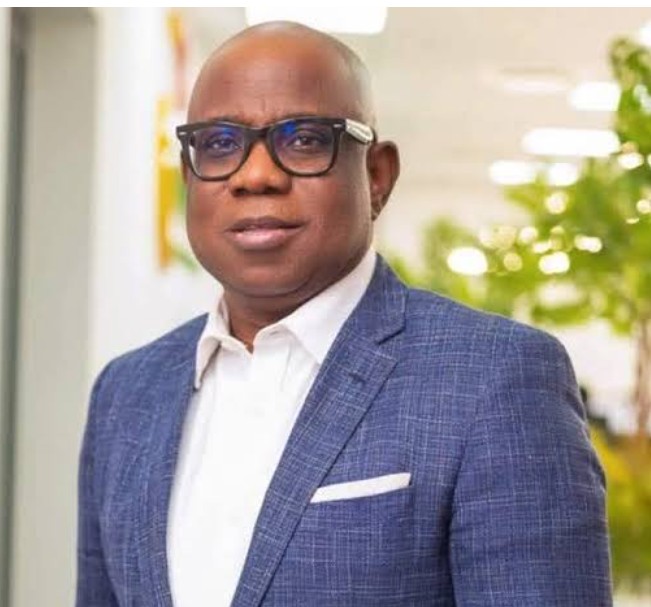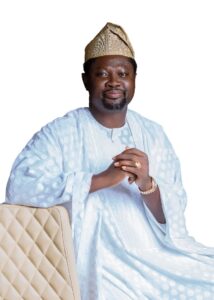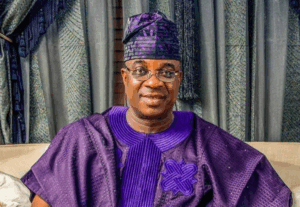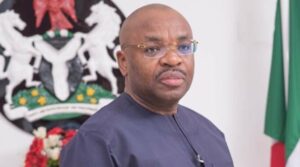Smoke Without Fire: Dissecting TheCable’s manufactured rumours against NNPC GCEO, Bashir Bayo Ojulari

By Abdullahi Mohammed
In the theatre of power, suspicion is often the currency of influence, and contrived narratives are the blades with which reputations are severed. In recent days, the name of Bashir Bayo Ojulari, Group Chief Executive Officer of the Nigerian National Petroleum Company (NNPC) Limited, has been thrust into the arena of orchestrated speculation. A story by TheCable, curated with theatrical suspense and cloaked in unverified claims, threatens to erode the credibility of a man whose only sin is his refusal to bow before the altar of entrenched interests.
TheCable’s so-called “exclusive” does not read like a report but a verdict dressed up as journalism. With insinuations instead of evidence, it declares Ojulari’s days in office numbered, his alleged crime being a professional interaction with Abdullahi Bashir-Haske, son-in-law of a former vice-president. It is a sobering commentary on our times that competence now courts condemnation simply by adjacency.
No crime has been proven. No breach of law established. Yet the public is fed a script more suitable for a political thriller than a sober discourse on national oil management. The implication is that Ojulari, through transactions involving a company led by a man who happens to be married to a former vice-president’s daughter, is “sleeping with the enemy.” This is not intelligence; it is paranoia in a masquerade. The daughter of the National Security Adviser (NSA), Malam Nuhu Ribadu, is married to the son of a former vice-president. Nigeria has witnessed remarkably outstanding feats in the security circles under the NSA despite this established family connections.
To argue that a business deal between a national oil company and a private energy player constitutes betrayal because of familial ties is to criminalise commerce. Nigeria’s economy is built on crosscutting relationships. In a nation where everyone is someone’s relative, neighbour, schoolmate or colleague, to begin disqualifying partnerships based on political lineage is to throw merit into the abyss of absurdity. If merit must yield to genealogical suspicions, then the very foundation of our public-private engagements is imperilled.
Ojulari was not appointed to appease a faction or play a political tune. He was chosen because he represents a rare blend of international and indigenous expertise. His brief stint at NNPC has already begun to recalibrate the narrative from opacity to accountability. His leadership has brought fresh air into a space long suffocated by backroom deals and power blocs. Yet the deeper he digs into reform, the louder the resistance grows. Why? Because entrenched forces, accustomed to a system that rewards silence and punishes reform, feel cornered.
His emergence came at a time when the NNPC desperately needed reinvention, post-Petroleum Industry Act, post-corporatisation and post-confidence. He inherited a system bloated by inefficiency and resistant to change. But rather than serve as a ceremonial head, he got to work, dismantling empires built on excess, initiating audits, trimming fat and confronting inefficiencies. These are not the actions of a compromised man. They are the bold strokes of a reformer who knows that real progress requires stepping on toes.
In Plato’s allegory of the cave, those still chained in darkness often attack the one who escapes to see the light. Ojulari has become that figure, the man who left the shadows of institutional complacency to glimpse what real reform could look like. Now, those still tethered to the old ways are trying to drag him back into the darkness. They will not succeed unless we allow them.
The allegations linking Ojulari to a political betrayal are baseless and laughably shallow. Business between NNPC and AA&R Investment Group predates his tenure. That the founder of AA&R is married to a member of Atiku’s family does not automatically equate to treason. Such connections are stretched into a scandal only in a country where conspiracy is currency. It is not illegal to do business with a legitimate entity. Interacting with private sector leaders who have ties to politicians is not treason. Nigeria is not a monarchy of loyalties but a republic of laws.
Worse still is the attempt to cast EFCC “investigations” as indictments. There has been no accusation against Ojulari, and no judicial process has found him guilty. Yet the mere mention of a probe is now enough to trigger headlines, speculation, and character decapitation.
This is not justice. It is trial by hearsay.
Investigations, if there are any, by their very nature, are inquisitive, not conclusive. They serve to establish facts, not frame scapegoats. If every reformer is to be hounded out of office because a faceless source whispered to the media, then we are setting a precedent where change will never survive the mob.
What kind of message are we sending to future technocrats? That excellence will be punished? That patriotism must first be filtered through political loyalty? That the shadows of suspicion will always triumph over the sunlight of truth?
Ojulari’s record speaks louder than rumours. From his impeccable leadership at SNEPCo to his current restructuring efforts at NNPC, his trajectory is marked by competence, not controversy. He didn’t arrive at the national oil firm by accident. He was not foisted by politics but by performance. And since assuming office, his focus has remained fixed on national interest, not partisan intrigue.
Those now crafting his downfall are not defenders of the nation; they are beneficiaries of stagnation. They seek to tarnish not because he has failed, but precisely because he has dared to succeed. In Ojulari, they see a threat to old habits, preferential deals and informal power networks. And so they raise the banner of false outrage, hoping that repetition will take the place of reason.
But we must not allow ourselves to be co-opted by this theatre of deceit. Nigerians are no recipients of elite manipulation through the media. We must insist on facts, not fables. If there is evidence, let it be presented. If there is a case, let it be prosecuted. But to rely on speculation, conflate business with betrayal and turn legitimate engagement into a charge of treachery is gangsterism disguised as guardianship. It must not stand.
Ojulari deserves more than a whisper campaign. He deserves a fair hearing, not a fixed narrative. His innovations at NNPC deserve encouragement, not ambush. His commitment to turning Nigeria’s energy sector into a globally respected enterprise deserves applause, not suspicion. We cannot continue to discard those who dare to disrupt decay.
Let it be said now and for the record: Ojulari is not the problem. He is the solution. And if we allow him to be dragged down by whispers and insinuations, then we will once again prove what history has long suggested, that Nigeria is a nation more comfortable in chaos than in course correction.
Reputation is fragile. Trust, even more so. But let it be remembered: shadows do not stain the sun. Ojulari stands tall today not because he is perfect, but because he has dared to be different. And in a time like this, difference is dangerous. That is why they fear him.
But history will vindicate. Facts will outlive fiction. And someday soon, when the fog of propaganda has lifted and the loud whispers fall silent, Nigeria will look back and realise that we came close to losing a national asset not because he failed, but because he refused to fail those who placed their hope in him.
Let Ojulari work. Let integrity triumph. Let the sun rise.
Abdullahi Mohammed writes from Abuja.






